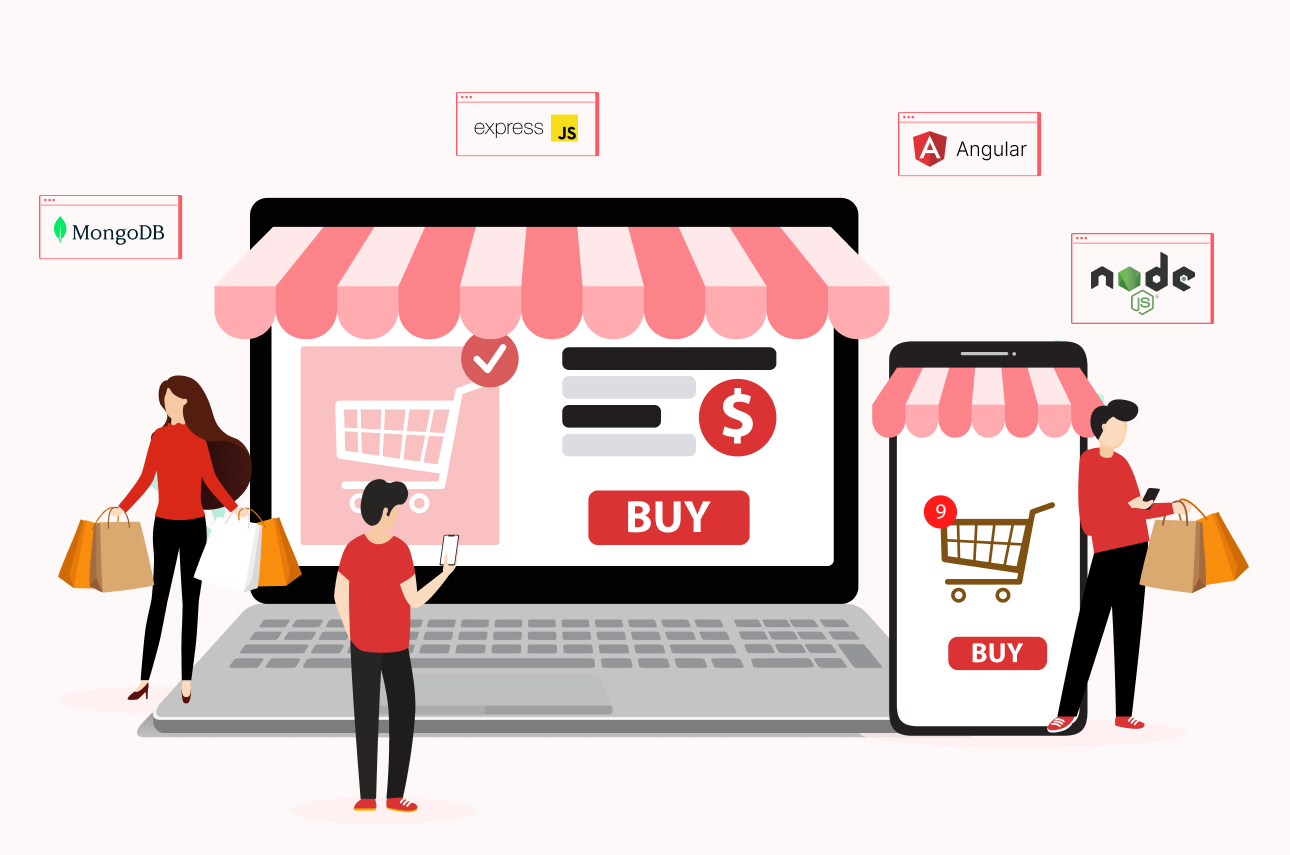Introduction
The eCommerce industry has witnessed significant growth in the contemporary digital era, and online shopping has seamlessly integrated into our daily routines. As the demand for online shopping continues to surge, businesses must construct scalable eCommerce platforms capable of managing extensive traffic, transactions, and user interactions. This is precisely where the MEAN stack for eCommerce emerges as a valuable solution.
The MEAN stack comprises a set of JavaScript-based technologies extensively employed in web development, encompassing MongoDB, Express.js, Angular.js, and Node.js. With its efficient, adaptable, and scalable nature, the MEAN stack offers an ideal platform for constructing sturdy web applications.
Within this blog, we will lead you through the step-by-step journey of crafting a versatile eCommerce website using the MEAN stack. Our comprehensive guide will encompass all aspects, starting from planning and environment setup to front-end and back-end development, and culminating in platform optimization for seamless scalability.
Without any further ado, let’s get started!
Also Read – Everything about MERN Stack vs MEAN Stack Development








